Prescription Drugs
Over-The-Counter Drugs
Vaccines
Homeopathic Medicine
Retail Pharmacy
Hospital Pharmacy
Online Pharmacy
Specialty Pharmacy
Cardiovascular
Oncology
Diabetes
Neurology
Infectious Diseases
Tablets
Injectables
Topicals
Liquids
North America
Europe
South America
Asia Pacific
Middle East and Africa
North America Outlook (USD Billion, 2019-2035)
North America Pharmacy Market by Product Type
Prescription Drugs
Over-The-Counter Drugs
Vaccines
Homeopathic Medicine
North America Pharmacy Market by Distribution Channel Type
Retail Pharmacy
Hospital Pharmacy
Online Pharmacy
Specialty Pharmacy
North America Pharmacy Market by Therapeutic Area Type
Cardiovascular
Oncology
Diabetes
Neurology
Infectious Diseases
North America Pharmacy Market by Formulation Type
Tablets
Injectables
Topicals
Liquids
North America Pharmacy Market by Regional Type
US
Canada
US Outlook (USD Billion, 2019-2035)
US Pharmacy Market by Product Type
Prescription Drugs
Over-The-Counter Drugs
Vaccines
Homeopathic Medicine
US Pharmacy Market by Distribution Channel Type
Retail Pharmacy
Hospital Pharmacy
Online Pharmacy
Specialty Pharmacy
US Pharmacy Market by Therapeutic Area Type
Cardiovascular
Oncology
Diabetes
Neurology
Infectious Diseases
US Pharmacy Market by Formulation Type
Tablets
Injectables
Topicals
Liquids
CANADA Outlook (USD Billion, 2019-2035)
CANADA Pharmacy Market by Product Type
Prescription Drugs
Over-The-Counter Drugs
Vaccines
Homeopathic Medicine
CANADA Pharmacy Market by Distribution Channel Type
Retail Pharmacy
Hospital Pharmacy
Online Pharmacy
Specialty Pharmacy
CANADA Pharmacy Market by Therapeutic Area Type
Cardiovascular
Oncology
Diabetes
Neurology
Infectious Diseases
CANADA Pharmacy Market by Formulation Type
Tablets
Injectables
Topicals
Liquids
Europe Outlook (USD Billion, 2019-2035)
Europe Pharmacy Market by Product Type
Prescription Drugs
Over-The-Counter Drugs
Vaccines
Homeopathic Medicine
Europe Pharmacy Market by Distribution Channel Type
Retail Pharmacy
Hospital Pharmacy
Online Pharmacy
Specialty Pharmacy
Europe Pharmacy Market by Therapeutic Area Type
Cardiovascular
Oncology
Diabetes
Neurology
Infectious Diseases
Europe Pharmacy Market by Formulation Type
Tablets
Injectables
Topicals
Liquids
Europe Pharmacy Market by Regional Type
Germany
UK
France
Russia
Italy
Spain
Rest of Europe
GERMANY Outlook (USD Billion, 2019-2035)
GERMANY Pharmacy Market by Product Type
Prescription Drugs
Over-The-Counter Drugs
Vaccines
Homeopathic Medicine
GERMANY Pharmacy Market by Distribution Channel Type
Retail Pharmacy
Hospital Pharmacy
Online Pharmacy
Specialty Pharmacy
GERMANY Pharmacy Market by Therapeutic Area Type
Cardiovascular
Oncology
Diabetes
Neurology
Infectious Diseases
GERMANY Pharmacy Market by Formulation Type
Tablets
Injectables
Topicals
Liquids
UK Outlook (USD Billion, 2019-2035)
UK Pharmacy Market by Product Type
Prescription Drugs
Over-The-Counter Drugs
Vaccines
Homeopathic Medicine
UK Pharmacy Market by Distribution Channel Type
Retail Pharmacy
Hospital Pharmacy
Online Pharmacy
Specialty Pharmacy
UK Pharmacy Market by Therapeutic Area Type
Cardiovascular
Oncology
Diabetes
Neurology
Infectious Diseases
UK Pharmacy Market by Formulation Type
Tablets
Injectables
Topicals
Liquids
FRANCE Outlook (USD Billion, 2019-2035)
FRANCE Pharmacy Market by Product Type
Prescription Drugs
Over-The-Counter Drugs
Vaccines
Homeopathic Medicine
FRANCE Pharmacy Market by Distribution Channel Type
Retail Pharmacy
Hospital Pharmacy
Online Pharmacy
Specialty Pharmacy
FRANCE Pharmacy Market by Therapeutic Area Type
Cardiovascular
Oncology
Diabetes
Neurology
Infectious Diseases
FRANCE Pharmacy Market by Formulation Type
Tablets
Injectables
Topicals
Liquids
RUSSIA Outlook (USD Billion, 2019-2035)
RUSSIA Pharmacy Market by Product Type
Prescription Drugs
Over-The-Counter Drugs
Vaccines
Homeopathic Medicine
RUSSIA Pharmacy Market by Distribution Channel Type
Retail Pharmacy
Hospital Pharmacy
Online Pharmacy
Specialty Pharmacy
RUSSIA Pharmacy Market by Therapeutic Area Type
Cardiovascular
Oncology
Diabetes
Neurology
Infectious Diseases
RUSSIA Pharmacy Market by Formulation Type
Tablets
Injectables
Topicals
Liquids
ITALY Outlook (USD Billion, 2019-2035)
ITALY Pharmacy Market by Product Type
Prescription Drugs
Over-The-Counter Drugs
Vaccines
Homeopathic Medicine
ITALY Pharmacy Market by Distribution Channel Type
Retail Pharmacy
Hospital Pharmacy
Online Pharmacy
Specialty Pharmacy
ITALY Pharmacy Market by Therapeutic Area Type
Cardiovascular
Oncology
Diabetes
Neurology
Infectious Diseases
ITALY Pharmacy Market by Formulation Type
Tablets
Injectables
Topicals
Liquids
SPAIN Outlook (USD Billion, 2019-2035)
SPAIN Pharmacy Market by Product Type
Prescription Drugs
Over-The-Counter Drugs
Vaccines
Homeopathic Medicine
SPAIN Pharmacy Market by Distribution Channel Type
Retail Pharmacy
Hospital Pharmacy
Online Pharmacy
Specialty Pharmacy
SPAIN Pharmacy Market by Therapeutic Area Type
Cardiovascular
Oncology
Diabetes
Neurology
Infectious Diseases
SPAIN Pharmacy Market by Formulation Type
Tablets
Injectables
Topicals
Liquids
REST OF EUROPE Outlook (USD Billion, 2019-2035)
REST OF EUROPE Pharmacy Market by Product Type
Prescription Drugs
Over-The-Counter Drugs
Vaccines
Homeopathic Medicine
REST OF EUROPE Pharmacy Market by Distribution Channel Type
Retail Pharmacy
Hospital Pharmacy
Online Pharmacy
Specialty Pharmacy
REST OF EUROPE Pharmacy Market by Therapeutic Area Type
Cardiovascular
Oncology
Diabetes
Neurology
Infectious Diseases
REST OF EUROPE Pharmacy Market by Formulation Type
Tablets
Injectables
Topicals
Liquids
APAC Outlook (USD Billion, 2019-2035)
APAC Pharmacy Market by Product Type
Prescription Drugs
Over-The-Counter Drugs
Vaccines
Homeopathic Medicine
APAC Pharmacy Market by Distribution Channel Type
Retail Pharmacy
Hospital Pharmacy
Online Pharmacy
Specialty Pharmacy
APAC Pharmacy Market by Therapeutic Area Type
Cardiovascular
Oncology
Diabetes
Neurology
Infectious Diseases
APAC Pharmacy Market by Formulation Type
Tablets
Injectables
Topicals
Liquids
APAC Pharmacy Market by Regional Type
China
India
Japan
South Korea
Malaysia
Thailand
Indonesia
Rest of APAC
CHINA Outlook (USD Billion, 2019-2035)
CHINA Pharmacy Market by Product Type
Prescription Drugs
Over-The-Counter Drugs
Vaccines
Homeopathic Medicine
CHINA Pharmacy Market by Distribution Channel Type
Retail Pharmacy
Hospital Pharmacy
Online Pharmacy
Specialty Pharmacy
CHINA Pharmacy Market by Therapeutic Area Type
Cardiovascular
Oncology
Diabetes
Neurology
Infectious Diseases
CHINA Pharmacy Market by Formulation Type
Tablets
Injectables
Topicals
Liquids
INDIA Outlook (USD Billion, 2019-2035)
INDIA Pharmacy Market by Product Type
Prescription Drugs
Over-The-Counter Drugs
Vaccines
Homeopathic Medicine
INDIA Pharmacy Market by Distribution Channel Type
Retail Pharmacy
Hospital Pharmacy
Online Pharmacy
Specialty Pharmacy
INDIA Pharmacy Market by Therapeutic Area Type
Cardiovascular
Oncology
Diabetes
Neurology
Infectious Diseases
INDIA Pharmacy Market by Formulation Type
Tablets
Injectables
Topicals
Liquids
JAPAN Outlook (USD Billion, 2019-2035)
JAPAN Pharmacy Market by Product Type
Prescription Drugs
Over-The-Counter Drugs
Vaccines
Homeopathic Medicine
JAPAN Pharmacy Market by Distribution Channel Type
Retail Pharmacy
Hospital Pharmacy
Online Pharmacy
Specialty Pharmacy
JAPAN Pharmacy Market by Therapeutic Area Type
Cardiovascular
Oncology
Diabetes
Neurology
Infectious Diseases
JAPAN Pharmacy Market by Formulation Type
Tablets
Injectables
Topicals
Liquids
SOUTH KOREA Outlook (USD Billion, 2019-2035)
SOUTH KOREA Pharmacy Market by Product Type
Prescription Drugs
Over-The-Counter Drugs
Vaccines
Homeopathic Medicine
SOUTH KOREA Pharmacy Market by Distribution Channel Type
Retail Pharmacy
Hospital Pharmacy
Online Pharmacy
Specialty Pharmacy
SOUTH KOREA Pharmacy Market by Therapeutic Area Type
Cardiovascular
Oncology
Diabetes
Neurology
Infectious Diseases
SOUTH KOREA Pharmacy Market by Formulation Type
Tablets
Injectables
Topicals
Liquids
MALAYSIA Outlook (USD Billion, 2019-2035)
MALAYSIA Pharmacy Market by Product Type
Prescription Drugs
Over-The-Counter Drugs
Vaccines
Homeopathic Medicine
MALAYSIA Pharmacy Market by Distribution Channel Type
Retail Pharmacy
Hospital Pharmacy
Online Pharmacy
Specialty Pharmacy
MALAYSIA Pharmacy Market by Therapeutic Area Type
Cardiovascular
Oncology
Diabetes
Neurology
Infectious Diseases
MALAYSIA Pharmacy Market by Formulation Type
Tablets
Injectables
Topicals
Liquids
THAILAND Outlook (USD Billion, 2019-2035)
THAILAND Pharmacy Market by Product Type
Prescription Drugs
Over-The-Counter Drugs
Vaccines
Homeopathic Medicine
THAILAND Pharmacy Market by Distribution Channel Type
Retail Pharmacy
Hospital Pharmacy
Online Pharmacy
Specialty Pharmacy
THAILAND Pharmacy Market by Therapeutic Area Type
Cardiovascular
Oncology
Diabetes
Neurology
Infectious Diseases
THAILAND Pharmacy Market by Formulation Type
Tablets
Injectables
Topicals
Liquids
INDONESIA Outlook (USD Billion, 2019-2035)
INDONESIA Pharmacy Market by Product Type
Prescription Drugs
Over-The-Counter Drugs
Vaccines
Homeopathic Medicine
INDONESIA Pharmacy Market by Distribution Channel Type
Retail Pharmacy
Hospital Pharmacy
Online Pharmacy
Specialty Pharmacy
INDONESIA Pharmacy Market by Therapeutic Area Type
Cardiovascular
Oncology
Diabetes
Neurology
Infectious Diseases
INDONESIA Pharmacy Market by Formulation Type
Tablets
Injectables
Topicals
Liquids
REST OF APAC Outlook (USD Billion, 2019-2035)
REST OF APAC Pharmacy Market by Product Type
Prescription Drugs
Over-The-Counter Drugs
Vaccines
Homeopathic Medicine
REST OF APAC Pharmacy Market by Distribution Channel Type
Retail Pharmacy
Hospital Pharmacy
Online Pharmacy
Specialty Pharmacy
REST OF APAC Pharmacy Market by Therapeutic Area Type
Cardiovascular
Oncology
Diabetes
Neurology
Infectious Diseases
REST OF APAC Pharmacy Market by Formulation Type
Tablets
Injectables
Topicals
Liquids
South America Outlook (USD Billion, 2019-2035)
South America Pharmacy Market by Product Type
Prescription Drugs
Over-The-Counter Drugs
Vaccines
Homeopathic Medicine
South America Pharmacy Market by Distribution Channel Type
Retail Pharmacy
Hospital Pharmacy
Online Pharmacy
Specialty Pharmacy
South America Pharmacy Market by Therapeutic Area Type
Cardiovascular
Oncology
Diabetes
Neurology
Infectious Diseases
South America Pharmacy Market by Formulation Type
Tablets
Injectables
Topicals
Liquids
South America Pharmacy Market by Regional Type
Brazil
Mexico
Argentina
Rest of South America
BRAZIL Outlook (USD Billion, 2019-2035)
BRAZIL Pharmacy Market by Product Type
Prescription Drugs
Over-The-Counter Drugs
Vaccines
Homeopathic Medicine
BRAZIL Pharmacy Market by Distribution Channel Type
Retail Pharmacy
Hospital Pharmacy
Online Pharmacy
Specialty Pharmacy
BRAZIL Pharmacy Market by Therapeutic Area Type
Cardiovascular
Oncology
Diabetes
Neurology
Infectious Diseases
BRAZIL Pharmacy Market by Formulation Type
Tablets
Injectables
Topicals
Liquids
MEXICO Outlook (USD Billion, 2019-2035)
MEXICO Pharmacy Market by Product Type
Prescription Drugs
Over-The-Counter Drugs
Vaccines
Homeopathic Medicine
MEXICO Pharmacy Market by Distribution Channel Type
Retail Pharmacy
Hospital Pharmacy
Online Pharmacy
Specialty Pharmacy
MEXICO Pharmacy Market by Therapeutic Area Type
Cardiovascular
Oncology
Diabetes
Neurology
Infectious Diseases
MEXICO Pharmacy Market by Formulation Type
Tablets
Injectables
Topicals
Liquids
ARGENTINA Outlook (USD Billion, 2019-2035)
ARGENTINA Pharmacy Market by Product Type
Prescription Drugs
Over-The-Counter Drugs
Vaccines
Homeopathic Medicine
ARGENTINA Pharmacy Market by Distribution Channel Type
Retail Pharmacy
Hospital Pharmacy
Online Pharmacy
Specialty Pharmacy
ARGENTINA Pharmacy Market by Therapeutic Area Type
Cardiovascular
Oncology
Diabetes
Neurology
Infectious Diseases
ARGENTINA Pharmacy Market by Formulation Type
Tablets
Injectables
Topicals
Liquids
REST OF SOUTH AMERICA Outlook (USD Billion, 2019-2035)
REST OF SOUTH AMERICA Pharmacy Market by Product Type
Prescription Drugs
Over-The-Counter Drugs
Vaccines
Homeopathic Medicine
REST OF SOUTH AMERICA Pharmacy Market by Distribution Channel Type
Retail Pharmacy
Hospital Pharmacy
Online Pharmacy
Specialty Pharmacy
REST OF SOUTH AMERICA Pharmacy Market by Therapeutic Area Type
Cardiovascular
Oncology
Diabetes
Neurology
Infectious Diseases
REST OF SOUTH AMERICA Pharmacy Market by Formulation Type
Tablets
Injectables
Topicals
Liquids
MEA Outlook (USD Billion, 2019-2035)
MEA Pharmacy Market by Product Type
Prescription Drugs
Over-The-Counter Drugs
Vaccines
Homeopathic Medicine
MEA Pharmacy Market by Distribution Channel Type
Retail Pharmacy
Hospital Pharmacy
Online Pharmacy
Specialty Pharmacy
MEA Pharmacy Market by Therapeutic Area Type
Cardiovascular
Oncology
Diabetes
Neurology
Infectious Diseases
MEA Pharmacy Market by Formulation Type
Tablets
Injectables
Topicals
Liquids
MEA Pharmacy Market by Regional Type
GCC Countries
South Africa
Rest of MEA
GCC COUNTRIES Outlook (USD Billion, 2019-2035)
GCC COUNTRIES Pharmacy Market by Product Type
Prescription Drugs
Over-The-Counter Drugs
Vaccines
Homeopathic Medicine
GCC COUNTRIES Pharmacy Market by Distribution Channel Type
Retail Pharmacy
Hospital Pharmacy
Online Pharmacy
Specialty Pharmacy
GCC COUNTRIES Pharmacy Market by Therapeutic Area Type
Cardiovascular
Oncology
Diabetes
Neurology
Infectious Diseases
GCC COUNTRIES Pharmacy Market by Formulation Type
Tablets
Injectables
Topicals
Liquids
SOUTH AFRICA Outlook (USD Billion, 2019-2035)
SOUTH AFRICA Pharmacy Market by Product Type
Prescription Drugs
Over-The-Counter Drugs
Vaccines
Homeopathic Medicine
SOUTH AFRICA Pharmacy Market by Distribution Channel Type
Retail Pharmacy
Hospital Pharmacy
Online Pharmacy
Specialty Pharmacy
SOUTH AFRICA Pharmacy Market by Therapeutic Area Type
Cardiovascular
Oncology
Diabetes
Neurology
Infectious Diseases
SOUTH AFRICA Pharmacy Market by Formulation Type
Tablets
Injectables
Topicals
Liquids
REST OF MEA Outlook (USD Billion, 2019-2035)
REST OF MEA Pharmacy Market by Product Type
Prescription Drugs
Over-The-Counter Drugs
Vaccines
Homeopathic Medicine
REST OF MEA Pharmacy Market by Distribution Channel Type
Retail Pharmacy
Hospital Pharmacy
Online Pharmacy
Specialty Pharmacy
REST OF MEA Pharmacy Market by Therapeutic Area Type
Cardiovascular
Oncology
Diabetes
Neurology
Infectious Diseases
REST OF MEA Pharmacy Market by Formulation Type
Tablets
Injectables
Topicals
Liquids


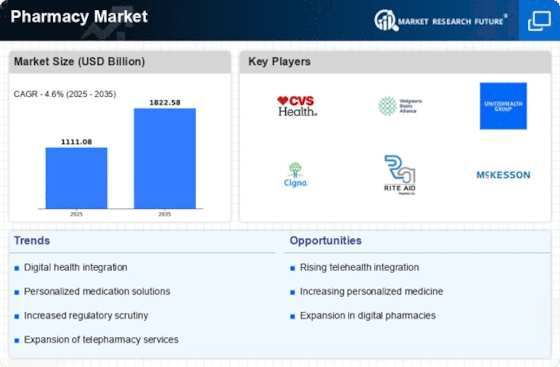
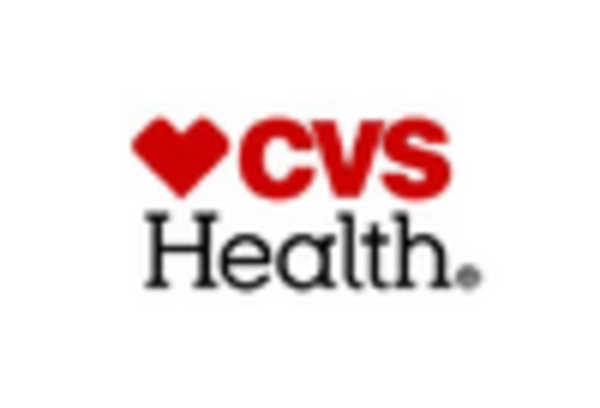
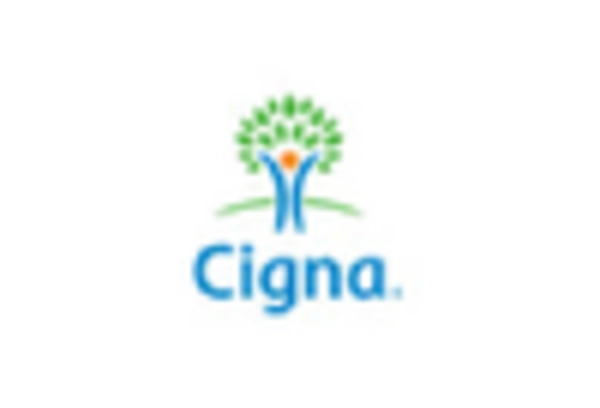

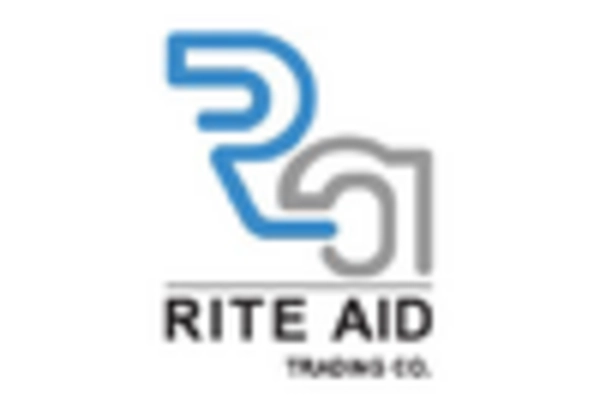

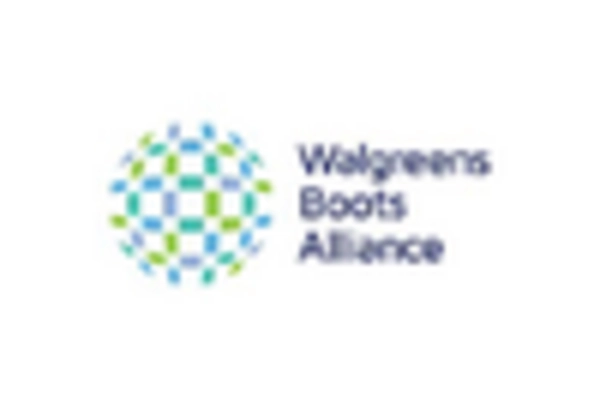









Leave a Comment